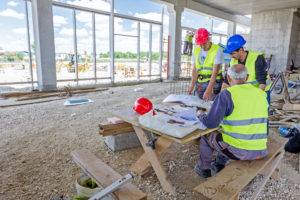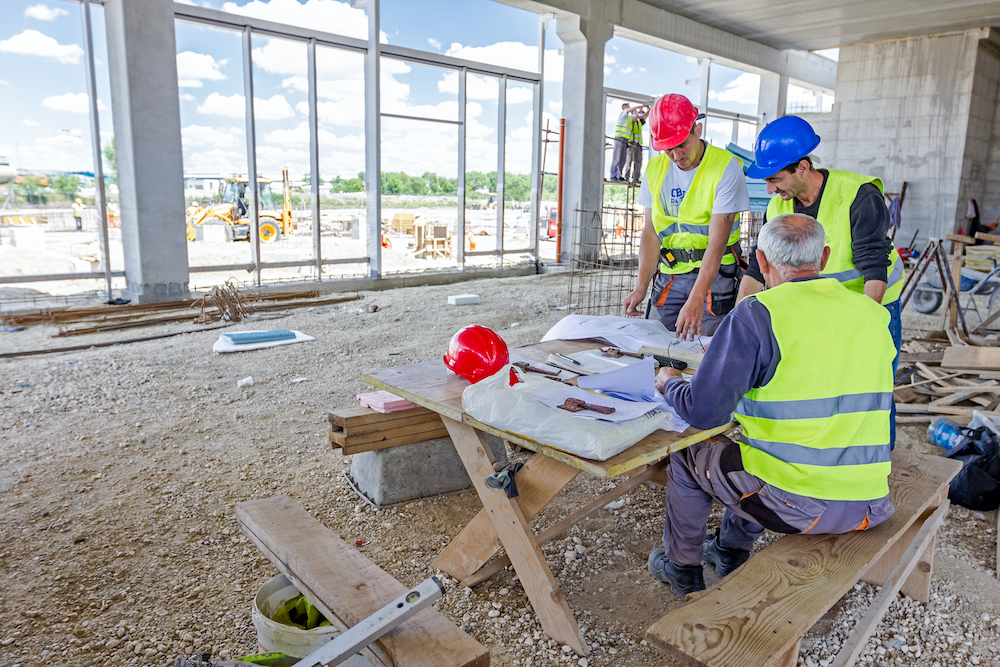
The construction industry has a communication problem. It’s natural – each job requires cooperation among a number of different trades, and it’s tough to get everybody on the same page. But, by holding an effective construction kickoff meeting, the job will start off on the right foot and problems down the line can be minimized.
Don’t Underestimate the Power of Project Kickoff Meetings
They can feel like a formality, but kickoff meetings are incredibly important. Without an effective kickoff meeting, the job can’t start off on the right foot. When everyone walks away from a construction kickoff meeting, they should feel confident about how the project will be run, when they’ll be paid, and how issues will be managed along the way. But if the meeting is a mere formality, and real communication doesn’t take place, then it will be just another waste of time – and the missed opportunity to put everyone on the same page could rear its head as a dispute later on.
Every job is different, and on smaller jobs, it might not always make sense to hold separate meetings. Still, the following principles should apply.
Top of Chain Kickoff Meeting
At the start of the job, it’s important to make sure all parties who make high-level decisions and direct the work being done are on the same page. The top of chain kickoff meeting will likely feature some combination of the following: the owner, architect, project manager, general contractor, and maybe some high-tiered subs or major suppliers.
In order to properly guide and direct work as a cohesive unit, it’s especially important that the parties with the most power on the job are able to confer and act as one. By properly communicating from the start, these parties can avoid misunderstandings, minimize future change orders, and begin building relationships that will only grow more valuable as the job carries on. When participants can trust each other, or when they’re at least comfortable discussing important issues, it’s easier to avoid blow-ups when hard decisions must be made down the line.
Think about it! Most disputes come from changes, the project schedule, or payment problems. They’re all sensitive topics, but if relationships and mutual respect have been established from the jump, it’s easier to proactively talk about these potential areas of dispute and diffuse what could later become an explosive situation.
Kickoff Meeting With Contractor and Trades
For projects with multiple tiers, it’s generally a good idea to have a separate meeting with some combination of the following parties: the general contractor, subcontractors, major suppliers, and major sub-subcontractors. Everyone knows that this is the group that actually does the site work. But, in order for that work to be done exactly how the owner, architect, and/or project manager intended, it’s crucial to set expectations from the start.
A strong kickoff meeting helps everyone on the job get a clear idea of what other trades will be doing on site. It’s a good opportunity for key players to get each other’s contact info. But maybe most importantly, it sets a collaborative tone from day 1 and encourages different trades to consider what’s going on with everyone else on the project.
Items for the Meeting Agenda
Regardless of who’s in attendance at the kickoff meeting, there are a host of topics that should be covered or at the very least touched on. Let’s group these into a few basic categories: project plans, ongoing concerns, and closeout.
The Project Plans
This includes the actual drawings and specs for the project. But it’s also important to discuss things like the schedule, what permits need to be pulled, proposed start and finish dates for specific trades, and it’s important to identify key milestones for the life of the project. Finally, when everyone leaves a kickoff meeting, they should have a concrete understanding of where their scope of work begins and ends.
Ongoing Concerns
It’s a good idea to set a weekly meeting schedule during the kickoff meetings. Other topics to be covered should include: payment schedules, processes for change orders, the submittal and approvals process, collecting lien waivers for progress payments, and how much retainage will be withheld from progress payments. How and when material deliveries should take place might also be discussed. Not to be overlooked is safety – safety protocols and procedures should be discussed from the get-go, and it’s probably a topic that should come up often at weekly meetings, too.
Closeout
It may seem a little early, but it’s a good idea to discuss closeout procedures as early as possible. Information like when retainage will be released, final lien waiver procedures, punch list procedures, and cleanup requirements should be relayed early. That way, when the end of the job comes around, no one can act surprised when they’re confronted with punch work, waiver requests, clean up – what have you.
General Considerations for Construction Kickoff Meetings
There is a lot of ground to cover in kickoff meetings. Even when efficiently run, these meetings can talk a long time. So, it’s a good idea to take breaks every so often and to keep it light and fun, where possible. It is far more important to keep the meeting succinct, though. Only cover topics that are necessary, and don’t be repetitive.
However, the most important consideration might be to take minutes at the meeting. By taking minutes, a record is created of what topics were discussed and what information was given. Thus, after the meeting, it will be easy to distribute those minutes to remind all meeting participants what was discussed, plus everyone will be able to refer back to the document if they have questions later on.
An Effective Kickoff Meeting Will Prevent Misunderstandings and Disputes Later on
When run poorly, meetings can be a complete waste of time. But, at the start of a construction project, a meeting can go a long way toward preventing misunderstandings and disputes later on.
Most construction disputes come down to poor communication, or a failure to collaborate between two or more project participants. By establishing relationships and putting everything on the table from day 1, it’s easier to make sure everyone’s either on the same page or is at least willing to pick up the phone and get on the same page when something goes awry.
Additional Resources
- Managing a Construction Project Requires Collaboration and Transparency
- Construction Document Management Presents Unique Challenges
- Construction Industry Communication Is Weak. Notices Will Make it Stronger

